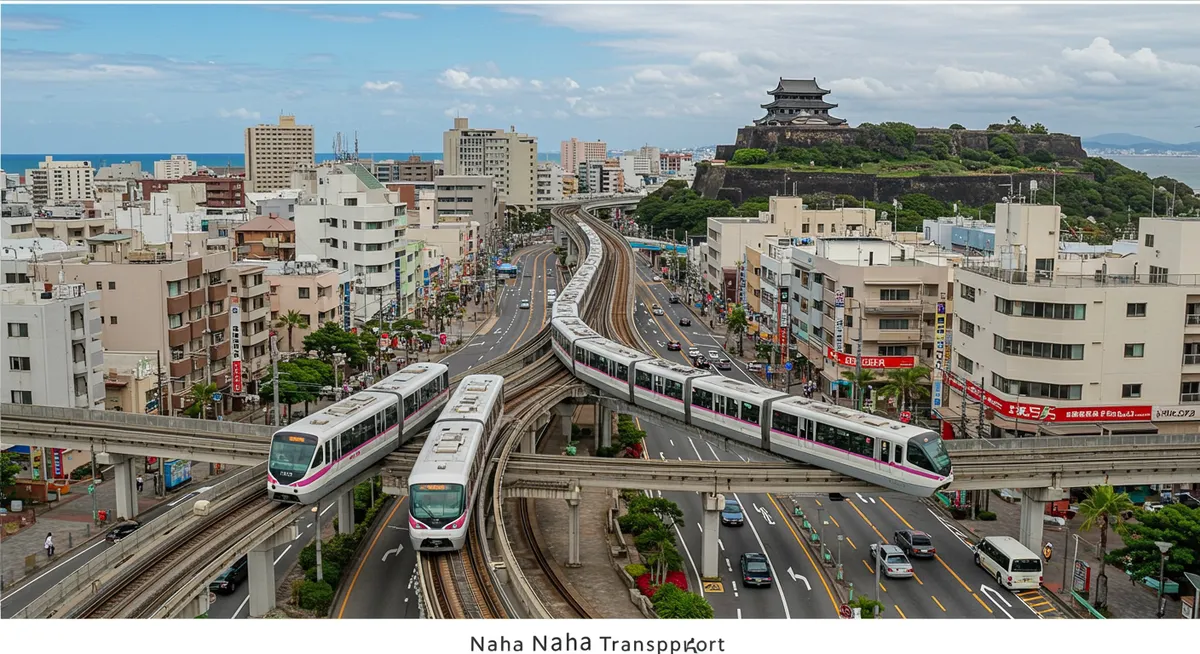
Naha Public Transportation Guide: Your Go-To
Table of Contents
Want to find the best travel deals for this destination? Chat with our travel hacking specialist!
Get Travel HacksCategory: naha-public-transportation-guide
Naha Public Transportation Guide
Having explored Naha extensively myself, I know firsthand how vital efficient travel is to truly soak in the city's unique charm. Getting around Naha, Japan, is surprisingly straightforward once you understand its public transportation system. From the convenient monorail to the extensive bus network, mastering local transit allows you to dive deeper into Okinawa's vibrant capital without the hassle of navigating unfamiliar roads or finding parking. This comprehensive Naha public transportation guide aims to equip you with all the knowledge needed for a smooth and enjoyable journey.
Okinawa Urban Monorail (Yui Rail): The Backbone of Naha
The Yui Rail, Naha's elevated monorail system, is undeniably the most efficient way to navigate the city center. Spanning from Naha Airport to Tedako-Uranishi Station, it conveniently connects major attractions like Kokusai Dori, Shuri Castle, and the prefectural office. I always recommend newcomers start here; it’s incredibly user-friendly, with clear English signage at every stop. You can purchase single-fare tickets or opt for 1-day or 2-day passes, which often prove more economical for sightseeing. This segment of the Naha public transportation guide is crucial for quickly accessing major attractions and getting a feel for the city. For more ideas on what to see, check our things to do in Naha.
Navigating Naha by Bus: Beyond the Monorail Line
While the Yui Rail covers central Naha effectively, the bus network expands your reach to areas not served by the monorail, including more residential districts and some remote attractions. Naha's city buses are reliable, though they can be a bit more challenging for first-time visitors due to less English signage compared to the monorail. Payment is typically made when exiting, either with exact change or by using an IC card like Okica, Suica, or Pasmo. My personal tip for bus travel: utilize Google Maps, as it provides accurate real-time routes and estimated arrival times, making your Naha public transportation guide experience seamless. This is essential when planning your Naha itinerary for 3 days.
Taxis and Ride-Sharing: Convenience at Your Fingertips
For ultimate convenience, especially when traveling with luggage, late at night, or with a group, taxis are a comfortable option in Naha. They are ubiquitous around major stations, hotels, and tourist spots. Fares are metered and generally reasonable, particularly if split among several people. While ride-sharing apps like Uber are present, traditional taxis remain the more common and often readily available choice. A helpful tip I've learned: always have your destination written down in Japanese for the driver, as not all drivers speak English. This ensures clear communication and a smooth ride, complementing any comprehensive Naha travel guide.
Practical Tips for Using Naha's Public Transport
To truly master your Naha public transportation guide experience, consider purchasing an IC card like Okica upon arrival. These cards are rechargeable and usable on both the Yui Rail and most bus lines, saving you the hassle of fumbling for change. For broader usability across Japan, major IC cards like Suica or Pasmo are also accepted. Be mindful of peak hours, especially during morning and evening commutes, when trains and buses can get crowded. Lastly, embracing local etiquette, like queueing patiently and avoiding loud conversations, enhances everyone’s travel experience. Always check the best time to visit Naha to avoid overly crowded periods.
Frequently Asked Questions
What is the best way to get around central Naha?
Can I use my Suica or Pasmo card in Naha?
Is Naha public transportation expensive?
Navigating Naha’s public transportation system is a straightforward and rewarding experience, offering an authentic glimpse into daily Okinawan life. By understanding the efficient Yui Rail, extensive bus routes, and convenient taxi options, you're well-equipped to explore every corner of this beautiful city. This Naha public transportation guide should empower you to travel confidently, connect with local culture, and make the most of your adventure. Ready to explore? Hop on the Yui Rail and begin your journey!